Law and Order
Stablecoin Bills Unfairly Box Out Foreign Issuers Like Tether, Says House Majority Whip
Published
4 days agoon
By
admin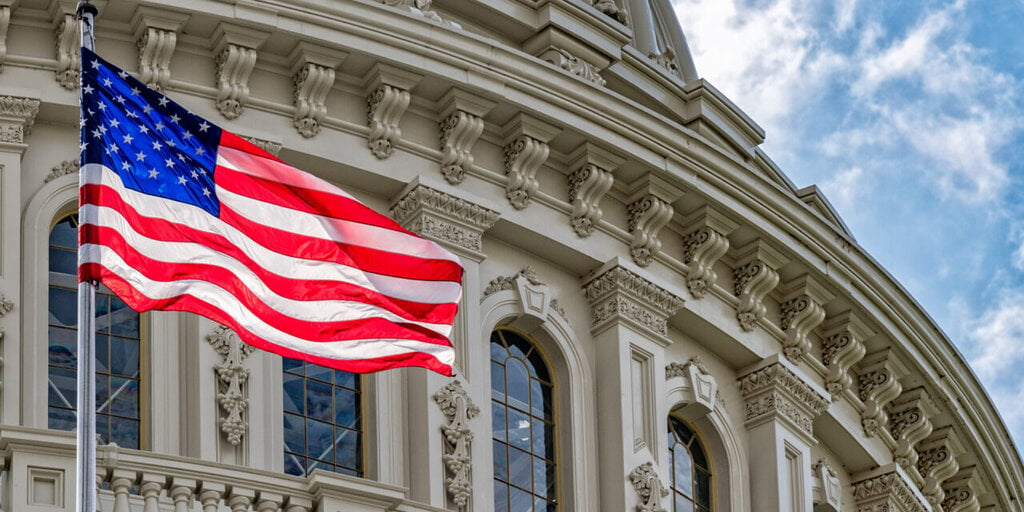
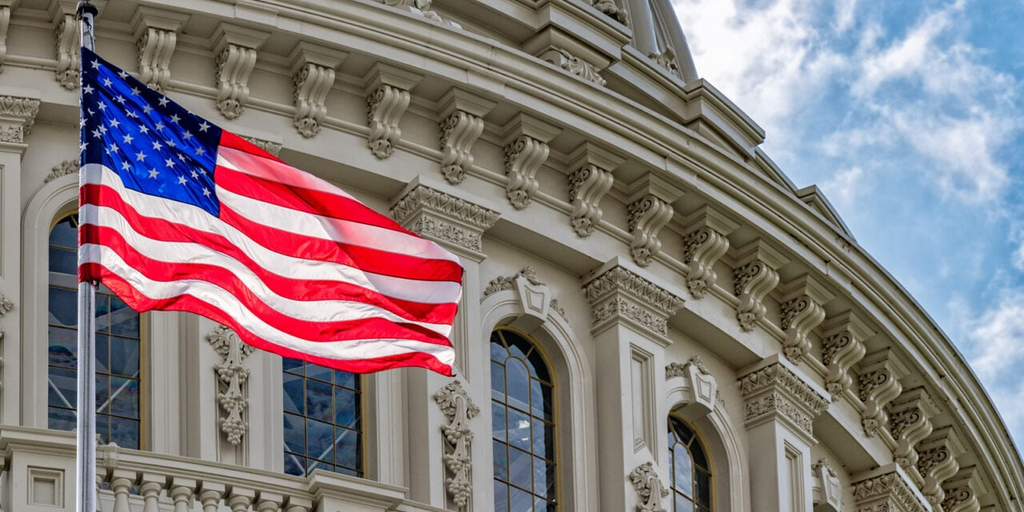
In a potential sign of brewing tensions regarding key language in multiple stablecoin bills circulating in Congress, House Majority Whip Tom Emmer (R-MN) said this week he doesn’t believe stablecoin issuers like Tether should have to comply with the anti-money laundering Bank Secrecy Act—a major sticking point of both the Senate’s stablecoin-focused GENIUS Act, and the House’s parallel STABLE Act.
Including such a provision in the legislation would unfairly box out foreign issuers, Emmer argues. The lawmaker believes stablecoin issuers, regardless of jurisdiction, should not be subject to the stringent anti-money laundering rules under the Bank Secrecy Act.
“The protections the so-called Bank Secrecy Act is supposed to provide were drafted for cash, and this is blockchain-driven,” Emmer told Decrypt Wednesday evening. “And guess what, everything on the blockchain is open and transparent to people who understand how to follow code.”
“It’s pretty interesting to say that the Bank Secrecy Act—which doesn’t even contemplate this type of technology, a digital asset—should be what we’re using,” the congressman added.
Stablecoins are digital assets typically pegged to the U.S. dollar and designed to keep a steady price. They’re used by cryptocurrency traders to enter and exit positions without the need for dollars, and used as dollar equivalents in markets where dollars are restricted or inaccessible.
The latest drafts of the GENIUS Act and STABLE Act treat all stablecoin issuers as financial institutions under the Bank Secrecy Act. The law, enacted in 1970, established a stringent set of proactive anti-money laundering rules that American banks must comply with in order to operate.
The Bank Secrecy Act, for example, obligates regulated institutions to engage in suspicious activity monitoring, undergo routine audits, hire compliance officers, and adopt a customer identification program mandated by the Patriot Act—the controversial law that expanded government surveillance powers shortly after the September 11, 2001, terrorist attacks.
Such requirements would pose quite a hurdle for existing foreign stablecoin issuers like Tether, the company behind USDT and the market’s undisputed leader. Tether, whose USDT stablecoin boasts a market capitalization in excess of $144 billion, is based in the U.S. Virgin Islands, and plans to move to El Salvador—but nonetheless is one of the world’s biggest purchasers of U.S. Treasuries, which it uses as collateral to back its U.S. dollar-pegged stablecoin.
In its current setup, Tether enjoys much less strict regulation than the Bank Secrecy Act would mandate, and the company’s leadership has implied that moves to force all stablecoin issuers to comply with such rules would hurt the firm and aid its competitors. By contrast, Circle, the issuer behind the market’s second-largest stablecoin USDC, is already based in the United States. While Circle does not yet comply with the Bank Secrecy Act, the company is regulated as a money transmitter by the New York Department of Financial Services.
Circle is also already in compliance with the European Union’s elaborate MiCA regulatory framework, a move Tether has resisted.
As stablecoin legislation in the U.S. nears a crescendo, questions have emerged regarding whether Tether would come to the United States if it had to comply with the Bank Secrecy Act—or, alternatively, what would happen if the stablecoin market’s top player was boxed out of American financial markets.
Emmer does not want to risk locking Tether, or any other foreign issuer, out of the burgeoning U.S. stablecoin sector.
“We’ve got to let everybody compete in this space,” he said.
That doesn’t mean Tether wouldn’t have to comply with certain rules in order to operate in the United States. To Emmer, the sticking point is proof of reserves—showing the government that your token is backed up with sufficient collateral to keep its value pegged to the dollar even in periods of market volatility.
To that end, Emmer believes Tether is, broadly speaking, doing well. In 2021, the company partnered with Wall Street firm Cantor Fitzgerald to help custody some of the $92 billion worth of U.S. Treasuries it claims to currently hold in reserve.
“Tether has done a great job straightening itself out in the last four years,” Emmer said.
The House Financial Services Committee is set to mark up the STABLE Act during a session next week. Meanwhile, the GENIUS Act already passed out of the Senate Banking Committee earlier this month with strong bipartisan support—Bank Secrecy language intact. It is likely to face a full vote on the Senate floor in the coming months.
Daily Debrief Newsletter
Start every day with the top news stories right now, plus original features, a podcast, videos and more.
Source link
You may like


Kristin Smith Steps Down as Blockchain Association CEO to Lead Solana’s Policy Push


crypto eyes ‘good news’ amid fragile market psychology


Bitcoin Price (BTC) Rises Ahead of President Trump Tariff Announcement


XRP Price to $27? Expert Predicts Exact Timeline for the Next Massive Surge


Grayscale files S-3 for Digital Large Cap ETF


279% Rally in 2025 for One Under-the-Radar Altcoin ‘Very Likely,’ According to Crypto Analyst
Law and Order
Kristin Smith Steps Down as Blockchain Association CEO to Lead Solana’s Policy Push
Published
31 minutes agoon
April 1, 2025By
admin
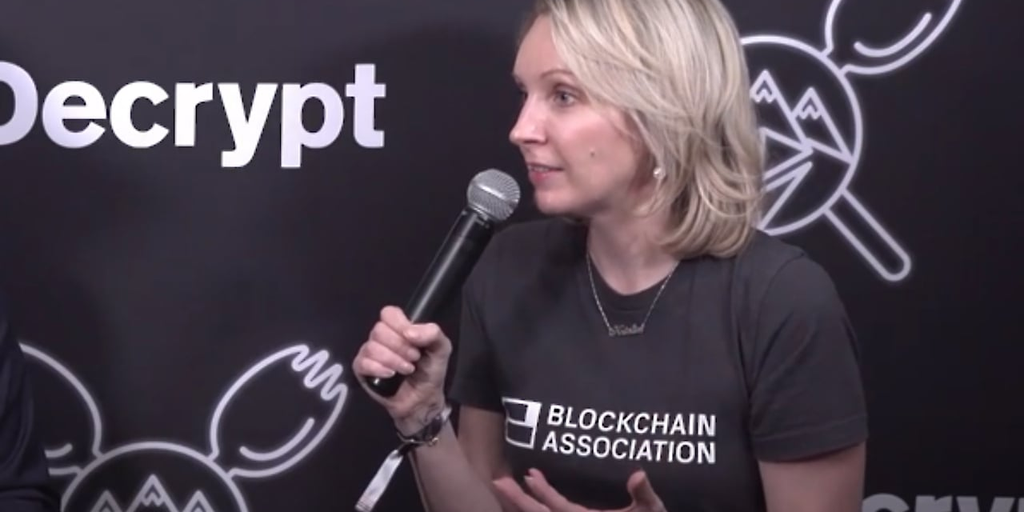
Blockchain Association CEO Kristin Smith will resign next month from her role at the prominent crypto-focused industry group that helped elect the U.S.’ first pro-crypto president to lead Layer-1 blockchain Solana’s new policy push.
Smith will begin a new role as president of Solana’s Policy Institute on May 19, she said Tuesday in an X post. Her last day at the Blockchain Association will be May 16.
The Blockchain Association’s Board of Directors has already begun the search for Smith’s successor, the group’s communications lead Curtis Kincaid told Decrypt.
“We’ve grown from a small group of passionate advocates into a leading force in Washington, D.C., and beyond,” Smith said in the X post. “Blockchain Association today is stronger than ever.”
Founded in 2018, the Blockchain Association is one of several industry groups that has fought to advance the crypto industry’s interests on Capitol Hill. Their efforts helped lead to the election of pro-crypto President Donald Trump last November—a watershed moment for an industry that had previously existed on tenterhooks.
But as digital asset firms’ clout in Washington D.C. has grown, so too have calls to enshrine even more of the industry’s interests into law. To meet that demand, a few Layer-1 blockchains have launched policy institutes. Now, Solana is joining them.
Edited by James Rubin
Daily Debrief Newsletter
Start every day with the top news stories right now, plus original features, a podcast, videos and more.
Source link
Law and Order
Trump’s Crypto Dealings Are Making Regulation ‘More Complicated’: House Financial Services Chair
Published
1 day agoon
March 31, 2025By
admin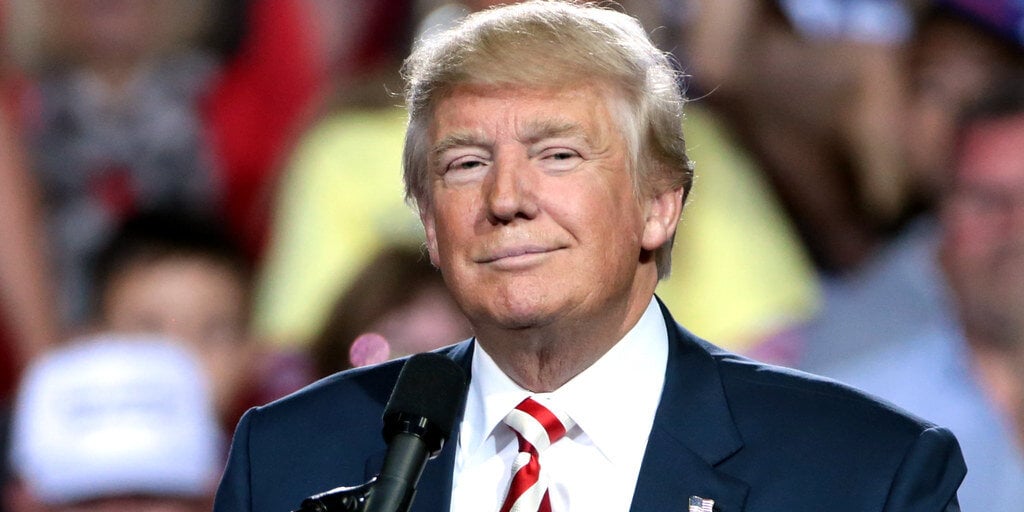
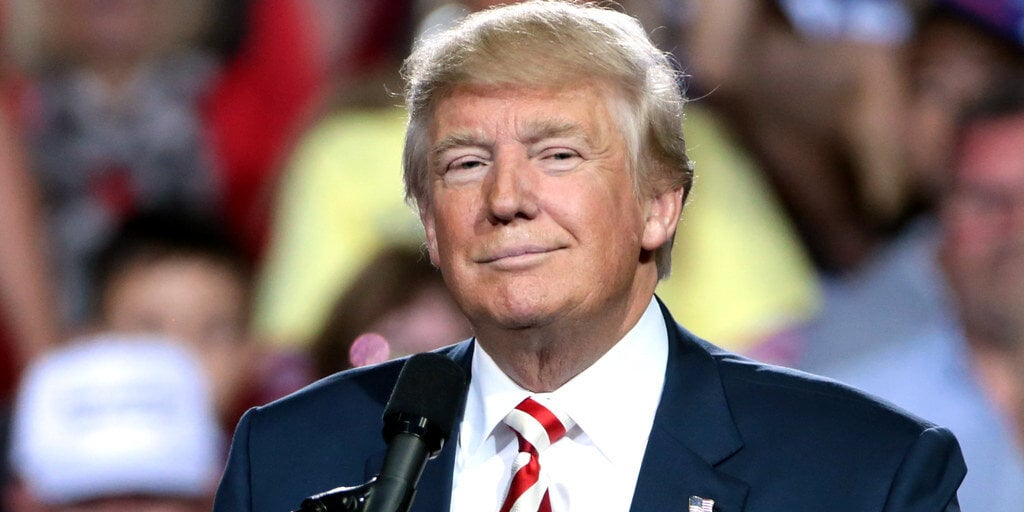
House Financial Services Committee Chair French Hill (R-AR) said Monday that the personal cryptocurrency dealings of President Donald Trump and his family have made drafting legislation for the novel sector “more complicated,” in a rare rebuke of the president’s personal activities by a key member of congressional Republican leadership.
Hill specifically named the president’s meme coin and stablecoin projects as two endeavors that have negatively impacted the work of lawmakers racing to create rules for the digital assets industry.
“They have made our work more complicated,” Hill told reporters Monday, in reference to those projects.
Since returning to power, Trump and his inner circle have rapidly expanded their crypto portfolios at the same time that the president is determining policies with direct impact on those same assets and sectors. In recent months, Trump and business partners have launched a Solana meme coin and an Ethereum decentralized finance platform called World Liberty Financial, which recently announced its own stablecoin.
Meme coins are speculative crypto assets that derive their value from cultural significance—and which the SEC recently likened to “collectibles”—while stablecoins are digital assets designed to keep a steady peg to the U.S. dollar.
Trump and his family have already netted hundreds of millions of dollars from such endeavors; unrealized earnings from the same projects number in the billions.
Trump’s existing businesses have also aggressively expanded their exposure to crypto in the same period. Last week, the company that runs the president’s Truth Social media platform announced a partnership with Crypto.com to offer crypto ETFs.
Just this morning, the president’s son, Eric and Don Jr, inked a deal to launch their own Bitcoin mining venture.
At the same time, the president has signed multiple executive orders with direct impact on the crypto industry. Further, White House officials are currently, at his direction, working with Republicans in Congress to help shape key pieces of legislation that will create, for the first time, an American crypto regulatory regime.
Earlier this month, the president’s AI and crypto czar, David Sacks, dismissed the president’s personal crypto endeavors as “irrelevant” to industry regulation.
But it appears patience among congressional Republicans over the scope of those lucrative schemes may be waning. The House Financial Services Committee is set to mark up its version of proposed stablecoin legislation, the STABLE Act, on Wednesday, and will soon consider a newer version of a market structure bill, according to comments made by Chair Hill Monday.
A parallel stablecoin bill is also currently making its way through the Senate. Such bills, if passed into law, would for the first time offer a clear path to legal certainty for a variety of crypto projects and companies, based on their compliance with new rules currently being ironed out. Their passage is anticipated to bring with it a wave of investment and support for the crypto industry from traditional finance institutions that until now have been waiting on the sidelines.
Though those bills possess bipartisan support, Trump’s personal business dealings have offered resistant Democrats a convenient means to protest their passage.
Last week, Sen. Elizabeth Warren (D-MA) denounced the Trump-backed World Liberty Financial stablecoin, USD1, as a “grift,” and tied the project to pending crypto legislation.
“Congress should step up and fix the current stablecoin bill moving through the Senate that will make it easier for Trump—and Elon Musk—to take control of your money,” she said.
Daily Debrief Newsletter
Start every day with the top news stories right now, plus original features, a podcast, videos and more.
Source link
Law and Order
SEC Officially Drops Cases Against Kraken, ConsenSys, and Cumberland DRW
Published
5 days agoon
March 28, 2025By
admin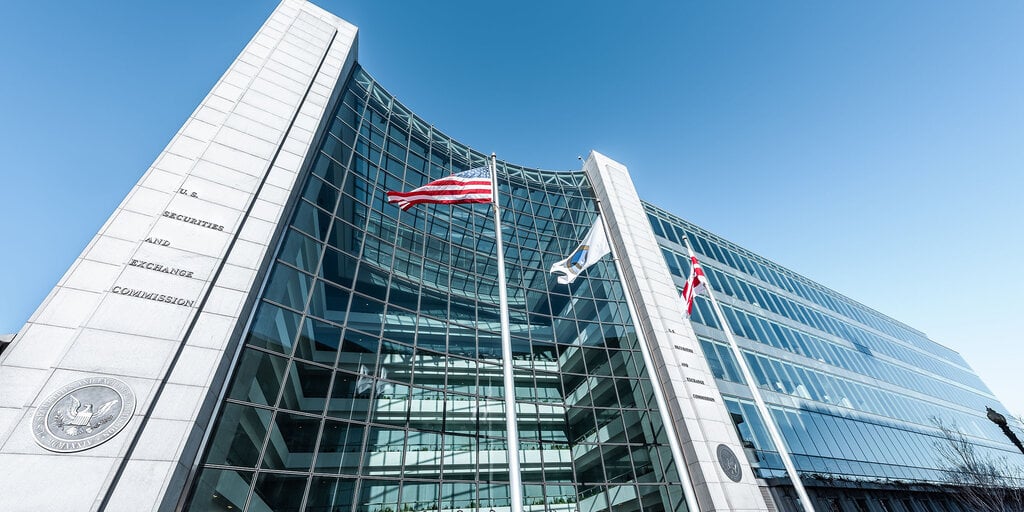
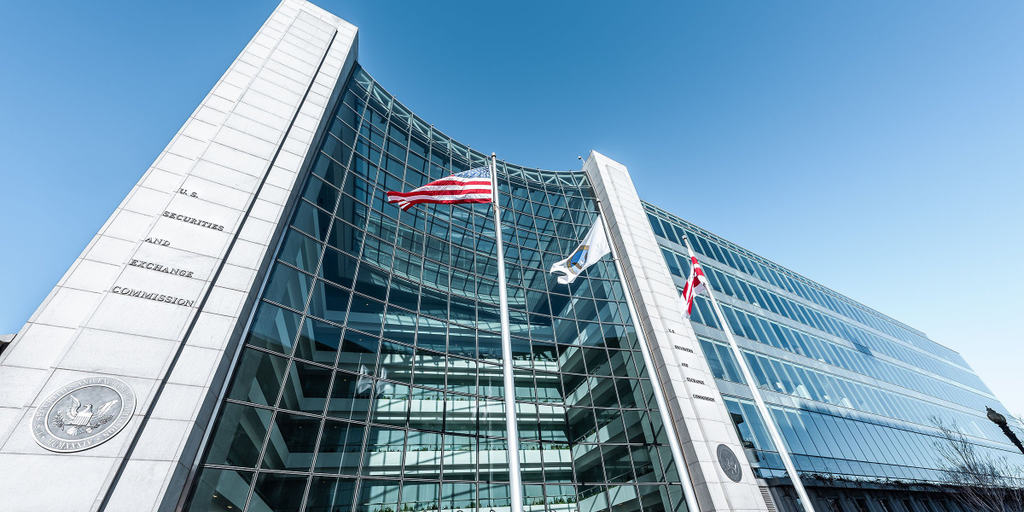
The U.S. SEC on Thursday dismissed enforcement actions against three major crypto firms, filing joint stipulations to drop the cases with prejudice, making the decisions final and not subject to refile.
Kraken, ConsenSys, and Cumberland DRW LLC all saw their respective lawsuits terminated simultaneously, marking the latest reversal in the agency’s regulatory approach toward digital assets.
The regulator has also officially closed its case against the exchange Crypto.com.
Disclaimer: ConsenSys is one of 22 investors in an editorially independent Decrypt.
The dismissals form part of a broader pivot in U.S. crypto regulation under the Trump administration, following similar ends to cases against Coinbase, Robinhood, Uniswap Labs, and OpenSea.
In a statement following the dismissal of civil enforcement action against Coinbase, acting SEC Chairman Mark T. Uyeda said these decisions were part of the agency’s “ongoing efforts” to “rectify its approach” and develop crypto policy in a “more transparent manner.”
Notably, the SEC emphasized that these dismissals do not “necessarily reflect the Commission’s position on any other case.”
The decision ends a “wasteful, politically motivated campaign,” Kraken said in a statement when the resolution for their case with the regulator arrived.
Kraken further characterized the SEC’s move as something that lifted “uncertainty” over what could have “stifled innovation and investment.”
The exchange provider later revealed its prospects of going public, potentially coming in as the second crypto firm to do so after Coinbase.
The resolution ends a tumultuous period for the industry. Each of the three companies had faced serious allegations under the prior Gensler regime.
Kraken was charged in November 2023 with operating an unregistered securities exchange, broker, dealer, and clearing agency.
ConsenSys faced accusations in June 2024 of unlawfully offering securities through its MetaMask Staking service.
Cumberland DRW, a Chicago-based trading firm, was sued in October 2024 for allegedly acting as an unregistered dealer handling over $2 billion in crypto assets.
Under acting Chairman Uyeda, the SEC had established a task force and actively engaged with the crypto industry, signaling a departure from the previous administration’s enforcement-focused approach.
Edited by Sebastian Sinclair
Daily Debrief Newsletter
Start every day with the top news stories right now, plus original features, a podcast, videos and more.
Source link

Kristin Smith Steps Down as Blockchain Association CEO to Lead Solana’s Policy Push

crypto eyes ‘good news’ amid fragile market psychology

Bitcoin Price (BTC) Rises Ahead of President Trump Tariff Announcement

XRP Price to $27? Expert Predicts Exact Timeline for the Next Massive Surge
Bitcoin And Altcoins Fischer Transform Indicator Turn Bearish For The First Time Since 2021

Grayscale files S-3 for Digital Large Cap ETF

279% Rally in 2025 for One Under-the-Radar Altcoin ‘Very Likely,’ According to Crypto Analyst

Human Rights Foundation Donates 1 Billion Satoshis To Fund Bitcoin Development

Dogecoin, Cardano Lead Gains as Crypto Majors Rally

Fartcoin price surges 35% as recovery gains momentum

$1M Premium Paid for $70K Bitcoin Put Option

How DePIN’s Revenue Growth is Attracting Equity Investors – DePIN Token Economics Report

Bitcoin Poised For A Q2 Recovery? Analyst Points 2017 Similarities

Binance ends Tether USDT trading in Europe to comply with MiCA rules

Crypto Trader Warns of Potential 33% Dogecoin Drop, Unveils Downside Price Target for Ethereum

Arthur Hayes, Murad’s Prediction For Meme Coins, AI & DeFi Coins For 2025

Expert Sees Bitcoin Dipping To $50K While Bullish Signs Persist

Aptos Leverages Chainlink To Enhance Scalability and Data Access

Bitcoin Could Rally to $80,000 on the Eve of US Elections

Sonic Now ‘Golden Standard’ of Layer-2s After Scaling Transactions to 16,000+ per Second, Says Andre Cronje

Institutional Investors Go All In on Crypto as 57% Plan to Boost Allocations as Bull Run Heats Up, Sygnum Survey Reveals

Crypto’s Big Trump Gamble Is Risky

Ripple-SEC Case Ends, But These 3 Rivals Could Jump 500x

Has The Bitcoin Price Already Peaked?

A16z-backed Espresso announces mainnet launch of core product

Xmas Altcoin Rally Insights by BNM Agent I

Blockchain groups challenge new broker reporting rule

The Future of Bitcoin: Scaling, Institutional Adoption, and Strategic Reserves with Rich Rines

Trump’s Coin Is About As Revolutionary As OneCoin

Is $200,000 a Realistic Bitcoin Price Target for This Cycle?
Trending

 24/7 Cryptocurrency News5 months ago
24/7 Cryptocurrency News5 months agoArthur Hayes, Murad’s Prediction For Meme Coins, AI & DeFi Coins For 2025

 Bitcoin3 months ago
Bitcoin3 months agoExpert Sees Bitcoin Dipping To $50K While Bullish Signs Persist

 24/7 Cryptocurrency News3 months ago
24/7 Cryptocurrency News3 months agoAptos Leverages Chainlink To Enhance Scalability and Data Access

 Bitcoin5 months ago
Bitcoin5 months agoBitcoin Could Rally to $80,000 on the Eve of US Elections

 Altcoins2 months ago
Altcoins2 months agoSonic Now ‘Golden Standard’ of Layer-2s After Scaling Transactions to 16,000+ per Second, Says Andre Cronje

 Bitcoin5 months ago
Bitcoin5 months agoInstitutional Investors Go All In on Crypto as 57% Plan to Boost Allocations as Bull Run Heats Up, Sygnum Survey Reveals

 Opinion5 months ago
Opinion5 months agoCrypto’s Big Trump Gamble Is Risky

 Price analysis5 months ago
Price analysis5 months agoRipple-SEC Case Ends, But These 3 Rivals Could Jump 500x


